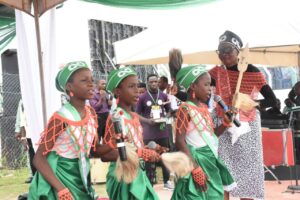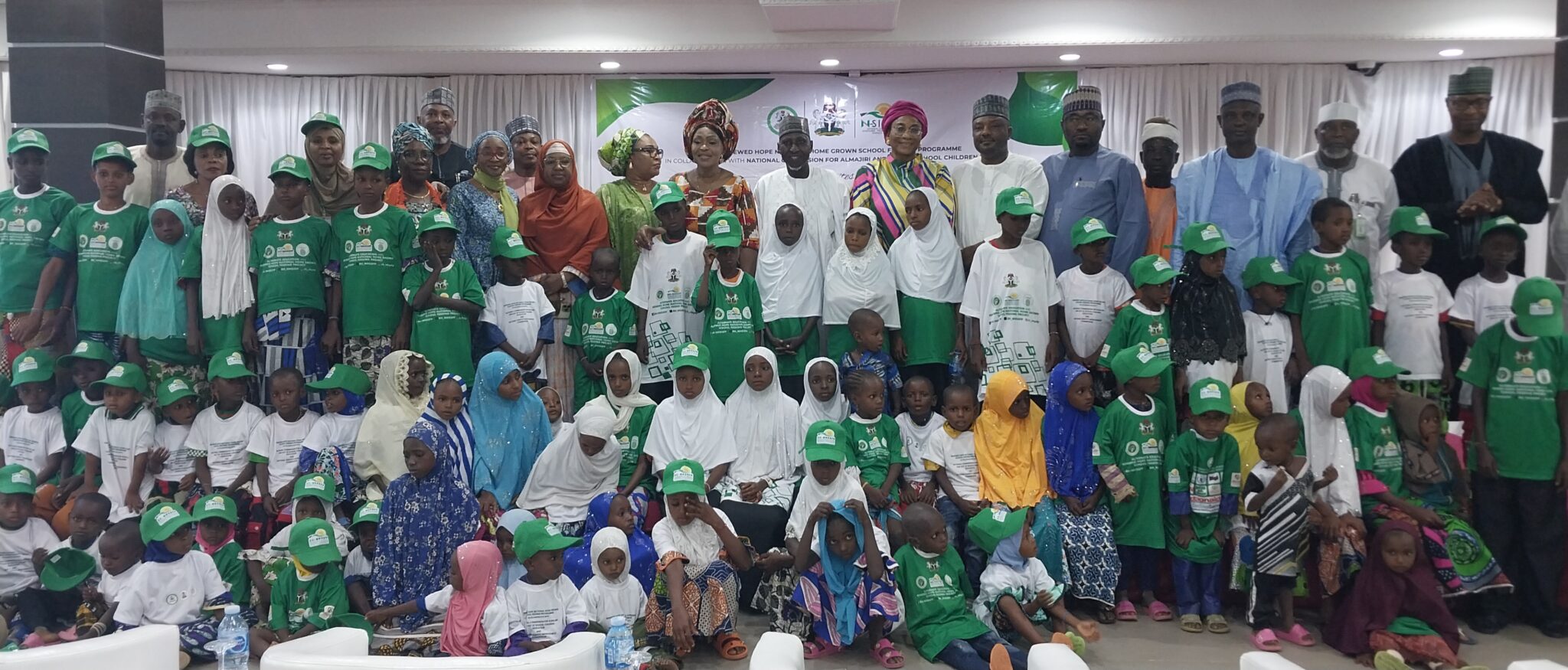304 total views today
By Justina Auta
As Nigeria prepares to celebrate 2025 Children’s Day, the country’s young population has advocated for greater inclusion and protection from the scourge of child trafficking.
They made the call on Monday ahead of the Children’s Day celebration organised by the Federal Ministry of Women’s Affairs in collaboration with the Save the Children International (SCI) and others in Abuja.
The theme for this year’s National Children’s Day is “Stand Up, Speak Up; Building a Bullying-Free Generation”.
Progress Friday-Umoh, the Speaker of the National Children’s Parliament, said children face challenges such as poverty, abuse, exploitation, lack of access to education and healthcare, stigma, and social exclusion and called for collective action to safeguard their rights and future.
She said: “children across nations are navigating fear, violence, and exclusion in spaces that should nurture them. It is time we give them more than just promises we must give them protection, platforms, and power.
“We need to see the National Policy on Safety, Security, and Violence-Free Schools implemented across the country not just on paper, but in practice, every school, every state. A child cannot learn in fear or in a war zone. Safety in learning environments must be the standard, not the exception.
“We must go beyond signing the Safe School Declaration and start bringing it to life, especially in crisis-prone areas. No child should sit in a classroom and wonder if they’ll make it home.”
Friday-Umoh stressed the need to strengthen child rights advocacy clubs, especially in underserved and rural areas to create awareness, spark bold conversations, and build young leaders.
According to her, the Girl-Led Movement initiative, supported by Save the Children International gave a platform for girls to raise their voices, share experiences, and contribute meaningfully to issues that affect them
Also, Safiya Alkali-Ajikolo, member, Borno state Children’s Parliament, called for more strategies to safeguard the lives of children in conflict affected states, as well as protect their rights to education, health and other basic needs.
Hajiya Imaan Sulaiman-Ibrahim, Minister of Women Affairs, reaffirmed government commitment towards addressing challenges ranging from child trafficking, forced labour, child marriage, domestic abuse, abandonment, amongst others affecting Nigeria’s children.
Sulaiman-Ibrahim, highlighted government efforts to include: launch of the National Coastal Action Plan 2025-2030 on Ending Violence Against Children, roll out of the National Guidelines on Alternative Care, review of the National Child Policy of 2008 and the Child Rights Act of 2003.
She added that government would also develop the National Policy on Menstrual Health and Hygiene Management, establish the Child Protection Knowledge and Data Centre, Child Protection Services structure, formal protection, reporting, response, and rehabilitation.
Others, she noted include: reviewing adoption regulations to strengthen processes that prevent abuse in that space, and strengthening the Nigerian Children’s Parliament at the national and state level.
” In addition, we are launching a universal child grant to alleviate household poverty and reduce children’s vulnerability to exploitation, abuse, and malnutrition.
“We are also establishing a National Child Protection Data Grid and a Child Welfare Index to track progress and guide policy and hold ourselves accountable to measurable outcomes.
“Nigeria will establish a dedicated child protection and development agency, a single coordinated institutional framework that will streamline all national efforts related to children’s welfare development and protection.
“This agency will ensure coherence, efficiency, and long-term impact across programmes and stakeholders,” she said.
The minister called on all stakeholders to be true guardians of children in all sector of their lives.
”Beginning from parents; please nurture with wisdom, discipline with love, listen with your hearts and lead by example.
”To the teachers; we know that the tasks can be overwhelming, but be guardians of safety, torchbearers of kindness, never turning a blind eye to cruelty in your classrooms or abandon your responsibilities and become perpetrators.
”To our places of worship; make your pulpits sanctuaries of truth, inclusion, and help for the young. To every community and cultural gatekeeper; let not tradition justify trauma.”
Dr Adedayo Benjamin-Laniyi, Mandate Secretary for the FCT Women Affairs Secretariat, emphasised the need to put in place structures that would protect the rights of children and ensure they thrive.
Duncan Harvey, Country Director, SCI, emphasised their supports towards implementing the Child Rights Act and strengthening child’s protection system to address bullying in and out of school across Nigeria.
“It is a legal and moral obligation to protect children from all forms of bullying within and outside the school environment.
” We call on all leaders to invest in establishing anti-bullying policies for safe, inclusive, and supportive environments where every child can learn, grow, and thrive free from fear, discrimination, or harm.’’
He stressed the need to include support child-led platforms, peer support groups, safe spaces, and school clubs that encourage children to speak up and support one another, as well as Involve them in the development of school rules and anti-bullying policies. (NAN) (www.nannews.ng)
Edited by Ismail Abdulaziz
















